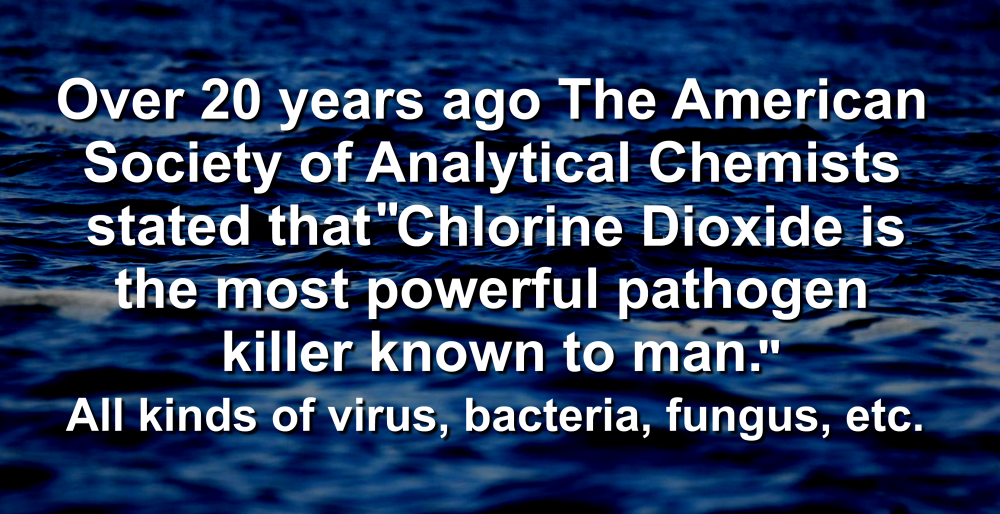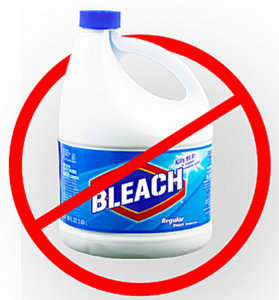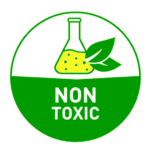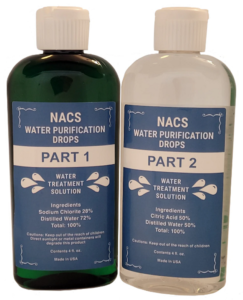Chlorine dioxide (ClO2) is a versatile and highly effective micro biocide that has received approvals from esteemed organizations such as the US EPA, FDA, and the UK Government for a vast spectrum of applications. Unlike its close relative, chlorine, chlorine dioxide has emerged as an eco-friendly solution that offers an array of benefits in various industries.
The Scope of Chlorine Dioxide
Chlorine dioxide is renowned as a “complete spectrum” anti-microbial agent due to its remarkable efficacy against a wide range of pathogenic organisms. These include well-known culprits such as Legionella, Pseudomonas, Listeria, E. coli, and Coliforms. Additionally, it effectively combats protozoa like Cryptosporidium and Giardia, as well as formidable opponents like MRSA.
Chlorine Dioxide vs. Chlorine: No Relation
Despite the shared term “chlorine” in their names, chlorine dioxide and chlorine are fundamentally distinct chemicals. The addition of an oxygen atom to chlorine dioxide’s molecular structure results in a radical transformation that diverges significantly in terms of chemical behavior and by-products. Importantly, chlorine dioxide contains no free chlorine, ensuring a clean and safe water purification process.
Why Chlorine Dioxide Over Chlorine?
Chlorine dioxide outperforms chlorine in several crucial aspects. Chlorine can alter the taste and odor of water, while chlorination produces harmful by-products like Trihalomethanes (THMs) and Bromates, which are linked to cancer. Chlorine is less effective at removing biofilm, is more corrosive, and has limited usability at higher temperatures.
Safe for Potable Water
Internationally recognized for its role in potable water treatment, chlorine dioxide effectively eliminates microorganisms, including Escherichia coli (E. coli), Listeria, Staphylococcus aureus, Giardia cysts, algae, and Salmonella. Its application ensures that drinking water meets stringent safety standards.
Diverse Applications of Chlorine Dioxide
Chlorine dioxide finds extensive use in a variety of sectors. In the food industry, it plays a crucial role in fruit and vegetable washing, meat and poultry disinfection, flume water disinfection, and odor control. Industrial processes benefit from chlorine dioxide in areas like cooling systems, ammonia plants, pulp mills, and oil fields. Furthermore, it is a staple in oral healthcare products for daily use.
Eco-Friendly and Biodegradable
Chlorine dioxide is not only highly effective but also environmentally friendly. It exhibits a remarkable biodegradability in sunlight, ensuring minimal environmental impact. Unlike traditional chlorine-based disinfectants, chlorine dioxide is non-toxic and produces no harmful by-products, making it the preferred choice for regulatory bodies and water authorities.
A Positive Environmental Influence
Chlorine dioxide has been shown to have a positive impact on the environment, especially when it replaces chlorine in various applications. Many Pulp and Paper Mills have transitioned to chlorine dioxide, virtually eliminating harmful chlorinated by-products like trichloromethanes and chloroacetic acids from their waste streams. These changes have significantly reduced environmental risks.
Safety and Environmental Assurance
Natural Antibacterial Cleaner Solution (NACS) Chlorine Dioxide is a safe and environmentally friendly choice. Toxicological studies have affirmed that chlorine dioxide and its disinfection by-product, Chlorite, pose negligible risks to human, animal, and aquatic health. Municipal water treatment processes worldwide have been successfully utilizing chlorine dioxide since its introduction for drinking water disinfection in 1944.
Chlorine Dioxide’s Resilience in Challenging Conditions
Chlorine dioxide exhibits remarkable resilience in adverse conditions, making it a versatile choice for various applications. Unlike some disinfectants that can lose effectiveness in the presence of organic materials or under certain pH levels, chlorine dioxide maintains its potency. This resilience ensures consistent pathogen-killing power even in challenging environments, providing reliable protection against waterborne contaminants.
In conclusion, chlorine dioxide stands as a robust and eco-conscious solution for water treatment and microbial control across diverse sectors. Its efficacy, safety, and minimal environmental impact make it a cornerstone in ensuring the health and safety of water resources and industrial processes alike.
Over 20 years ago, The American Society of Analytical Chemists stated that “Chlorine dioxide is the most powerful pathogen killer known to man.” And it’s still true today, including all kinds of viruses, bacteria, fungi, etc.




Leave a Reply